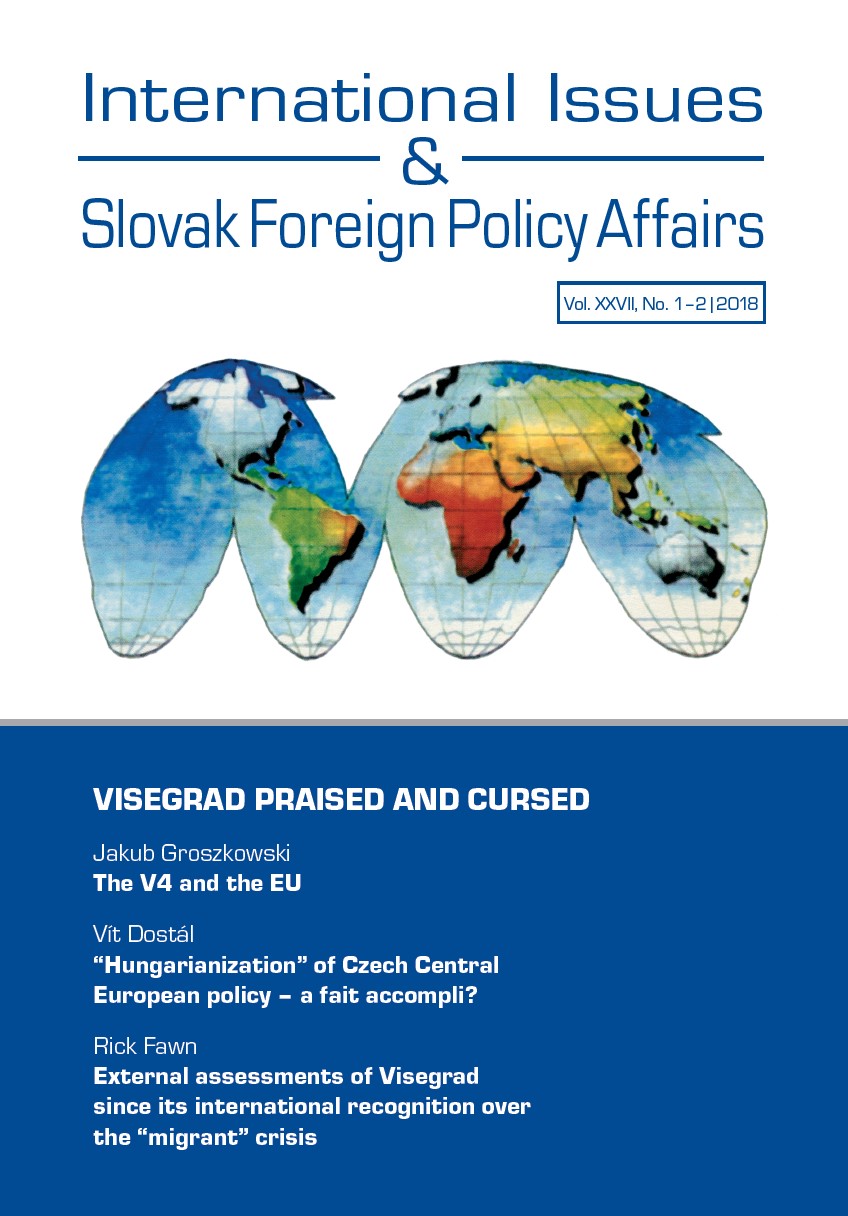“Hungarianization” of Czech Central European policy – a fait accompli?
“Hungarianization” of Czech Central European policy – a fait accompli?
Author(s): Vít DostálSubject(s): Politics / Political Sciences
Published by: Research Center of the Slovak Foreign Policy Association (RC SFPA)
Keywords: Czech Republic;Central Europe;foreign policy;Babiš;Orbán
Summary/Abstract: The article deals with the prospects of Czech foreign policy vis-à-vis the Visegrad Group. Although the Visegrad Group has a negative image in the EU, the Czech Republic (together with Slovakia) has often been perceived as a balancing factor against the policies of Budapest and Warsaw. I argue that the foreign policy of the new Czech government will no longer adopt this appeasing role. It will give up the remnants of its autonomous position and follow the direction set by Hungary and Poland. There will be no political will in Prague to provide Visegrad cooperation with new, positive, and at EU level, consensual topics. Prime Minister Andrej Babiš will use the Visegrad Group as a vehicle for confrontation with Brussels and Western European member states in the main – but not only – over migration issues. This will form his political program and represent an important component in his foreign policy.
Journal: International Issues & Slovak Foreign Policy Affairs
- Issue Year: XXVII/2018
- Issue No: 1-2
- Page Range: 16-23
- Page Count: 8
- Language: English

